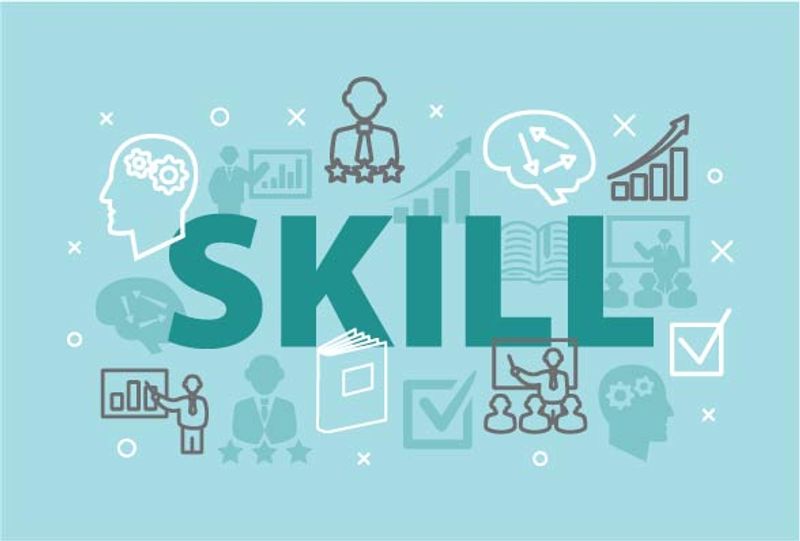
The Federal Skilled Worker Program Explained in 6 Steps
Immigrating to Canada is not only a life changing decision but can be quite complicated if you don’t make the right choice in immigration programs.
Canada currently has over 70 different visas and immigration programs to choose from, and although this may make more options available to you, it may also complicate the selection process. The more options there are, the greater the potential of choosing the wrong program and missing out on an opportunity that might set you on your way to success and have you living your Canadain dream in the shortest possible way.
That’s a big part of what we at Wow Immigration do. Our aim is to help educate you in all things immigration that pertains to your unique situation, so that you can make the right choice for you and give yourself the best possible chance at a better life in Canada.
This article deals with one of the most popular programs managed by the Express Entry system, namely the FSWP (Federal Skilled Worker Program), which (along with 2 with programs) has helped over 70,000 people immigrate to Canada in 2019 alone.
The FSWP aims to help highly skilled workers relocate to Canada as well as to close the current gap in the labour market that the country is currently facing. With a steady decline in birth rate, an earlier retirement age and a general lack of local skilled workers to fill positions at the rapid rate of job creations, Canada has had to implement certain strategies that are not only beneficial to employers but the employees themselves.
The FSWP has 6 general selection factors that you would need to meet in order to be considered eligible, which includes language, education, work experience, age, employment and adaptability.
Keep reading to find out how to optimize your FSWP visa application and how we can help take the hassle and stress out of the whole process.
6 Steps to Getting Permanent Residence in Canada Through the FSWP

The Federal Skilled Worker Program is generally aimed at those who have a highly skilled trade which is classified according to the NOC (National Occupation Classification) list. This is a standardised way of describing and categorising different occupations.
The NOC is divided into different skill levels, which helps to determine which program you are eligible for, for example, to be considered eligible to apply through the FSWP, you would need a skill type 0, skill level A or B. The type of jobs that would qualify are typically those that require a degree or tertiary qualification such as managerial, professional and technical jobs, including Tech professionals as well as some skilled trades. You will also need a minimum of 1 year of continuous work or 1,560 hours ie. 30 hours per week to qualify for this program
In order to qualify for the FSWP, you will need to score at least 67 out of a possible 100 points or more. The 6 selection factors for the FSWP include language skills, education. work experience, age, a valid Canadian job offer and adaptability.
It is important to note that this is different to the Express Entry CRS (Comprehensive Ranking System) that is used for Express Entry Draws. This allows for a possible 1200 points and includes extra factors such as 600 points dedicated to skills and experience, your spouse or common law partners’ language skills and education and skills transferability as well as another 600 points for Canadian qualifications, valid job offer, Provincial Nomination, siblings living in Canada and/or strong French language abilities.
You will also need to meet the general admissibility requirements of Canada, as well as be able to prove that you will have enough settlement funds for both you and your family unless you have a valid job offer and are able to legally work in Canada.

1. Brush up on Your French and English Skills
In order to prove your language ability you will need to take an approved language test such as the Canadian Language Benchmarks test (English or the Niveaux de competence linguistique canadiens (NCLC) for French. This is broken up into 4 sections: writing, reading, listening and speaking.
Your score breakdown will look something like this:
| Points | ||||
| First Official Language | Speaking | Listening | Reading | Writing |
| CLB level 9 or higher | 6 | 6 | 6 | 6 |
| CLB level 8 | 5 | 5 | 5 | 5 |
| CLB level 7 | 4 | 4 | 4 | 4 |
| Below CLB level 7 | Not eligible to apply | Not eligible to apply | Not eligible to apply | Not eligible to apply |
You will be able to score a maximum of 28 points if your English or French language skills are up to scratch, however will need a minimum of CLB7 or NCLC7 in either one to get points. You will be able to score a maximum of 24 points for your first language results, while to qualify to get points for your second language (maximum of 4 points) you will need at least CLB5 or NCLC 5.

2. Knowledge is Power!
In order to score points for education your will need to have either:
- a certificate, diploma or degree from a Canadian secondary or postsecondary institution; or
- an ECA (Educational Credential Assessment) from a foreign secondary or postsecondary institution.
You will be able to score a maximum of 25 points in this section. There are over 150 program scoring factors dependent on your assessment result. On average you’ll be scored in the following ways:
| Average Points Allocated for Educational Qualifications | |
| Assessment result (Canadian Equivalency) | Average factor points |
| Doctorates / Ph.D. / Professional degree | 23 – 25 |
| Master’s | 23 |
| Degrees / Bachelors | 19 -23 |
| Diplomas / post-secondary certificate or diploma | 15 -21 |
| Certificates | 15 -23 |
| High School certificate or diploma | 5 |
Please note that this is a general summary of how many points you could expect to earn based on your level of education. For a more comprehensive evaluation, the best option would be to consult a professional.

3. Work It!
Having work experience is another great way to push up your FSWP points. You can get up to 15 points for full-time work (at least 30 hours per week) experience or the equivalence of part time work (15 hours per week for 24 months) as long as it:
- is at skill type 0, or skill level A or B;
- in Canada or abroad;
- was while you were studying; or
- was while you were self-employed.
The number of points that you’ll be able to acquire is:
| Average Points Allocated for Work Experience | |
| Experience | Maximum Points |
| 1 year | 9 |
| 2-3 years | 11 |
| 2-3 years | 13 |
| 2-3 years | 15 |
This is where your NOC code comes in so be sure to find out what your code is for each job that you’ve had that could get you extra points!

4. Age is More Than just a Number
Unfortunately, in this case, age really does count. The older you are, the less points you will be able to score and if you are 47 years or older will not be able to score any points. The points scored based on your age will be calculated based on the age you are on the submission date of your application.
The maximum amount of points allocated to age is 15 and is scored as follows:
| Average Points Allocated for Age | |
| Age | Points |
| Under 18 | 0 |
| 18-35 years | 11 |
| 36 years | 11 |
| 37 years | 10 |
| 38 years | 9 |
| 39 years | 8 |
| 40 years | 7 |
| 41 years | 6 |
| 42 years | 5 |
| 43 years | 4 |
| 44 years | 3 |
| 45 years | 2 |
| 46 years | 1 |
| 47 years or older | 0 |

5. You’re Hired!
A maximum of 10 points is available to you if you can get a full-time job offer for at least 1 year. As for work experience, it will need to be a non-seasonal full-time position at skill type 0 or level A or B. You will also need to prove that you’re capable of executing the duties and tasks associated with the job and that you will be able to get a license or Canadian certification once you arrive.
Please note that there are various additional criteria that also need to be met in order for your points to kick in.

6. Welcome to the Neighbourhood
Did you know that you can get up to 10 extra points added to your eligibility score if you can prove that you will be able to settle in Canada easily? This is based on the following factors:
| Adaptability Score Breakdown | |
| Adaptability | Maximum Points |
| Your spouse or partner’s language ability(CLB level 4 or higher in French or English) | 5 |
| Your past studies in Canada (completed at least 2 full-time secondary or post-secondary academic program in Canada) | 5 |
| Your spouse or partner’s past studies in Canada (completed at least 2 full-time secondary or post-secondary academic program in Canada) | 5 |
| Your past work in Canada (at least 1 year of full-time work in skill type 0 or skill level A or B) | 5 |
| Your spouse or common-law’s past work in Canada (at least 1 year of full-time work in skill type 0 or skill level A or B) | 5 |
| Arranged employment in Canada | 5 |
| Relatives in Canada (citizens or permanent residents, older than 18 years old and living in Canada) | 5 |
Applying for Permanent Residence through the FSWP

Applying to immigrate to Canada through the FSWP requires quite a lot of preparation and can be quite daunting and complex if you are familiar with the process. Once you know that you’re eligible and have collected all of your supporting documents you’ll be ready to apply for permanent residence through the FSWP in these 3 easy steps.
Step 1: Ensure that you have all of the necessary documents ready.
Because you are applying through one of the federal economic programs managed by the Express Entry system, you will need to create an Express Entry profile. Although you won’t be required to upload your supporting documents just yet, you will need them to complete your online profile.
Step 2: Submit your Express Entry Profile
Once you’ve completed your online Express Entry profile, you will be entered into Express Entry draws, which generally take place every 2 weeks. Your profile will be ranked against other profiles based on factors such as your age, work experience, education, adaptability and language skills. Remember the CRS (Comprehensive Ranking Score) system is different to that of the FSWP eligibility scoring system and you will be ranked out of a possible 1200 points. Those with the highest CRS scores will receive an ITA (Invitation to Apply) to immigrate to Canada by applying for permanent residence.
Step 3: Accept Your Invitation to Apply for Permanent Residence!
You will be notified via your Express Entry account to let you know if you’ve been successful in your application. At this point you will need to supply supporting documents for the information supplied on your profile and accept the invitation within 60 days. If you miss the deadline you may have to submit a new profile and start the process all over again.
Haven’t been accepted? No problem. Your account remains active for 12 months and you will automatically be entered into draws every 2 weeks.
How We Can Help You

We can make sure there is no reason for your Canadian student visa to not be approved. By using our accredited Regulated Canadian Immigration Consultants (RCICs) you will not only improve your chances of success in the visa application process, but you will get expert advice on which program is best for your specific needs. Our RCICs at sober immigration are highly qualified and are granted permission by the ICCRC to assist you with your eligibility evaluation, review all your documents and application forms and submit them to the Canadian government for you. Why take the chance of having your application denied because your forms are incorrect or sent late.


